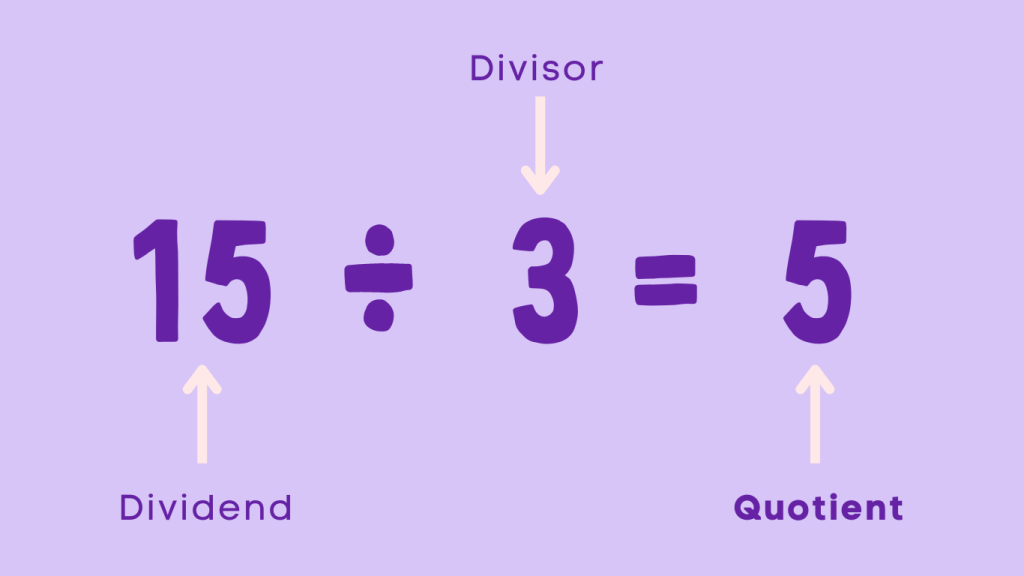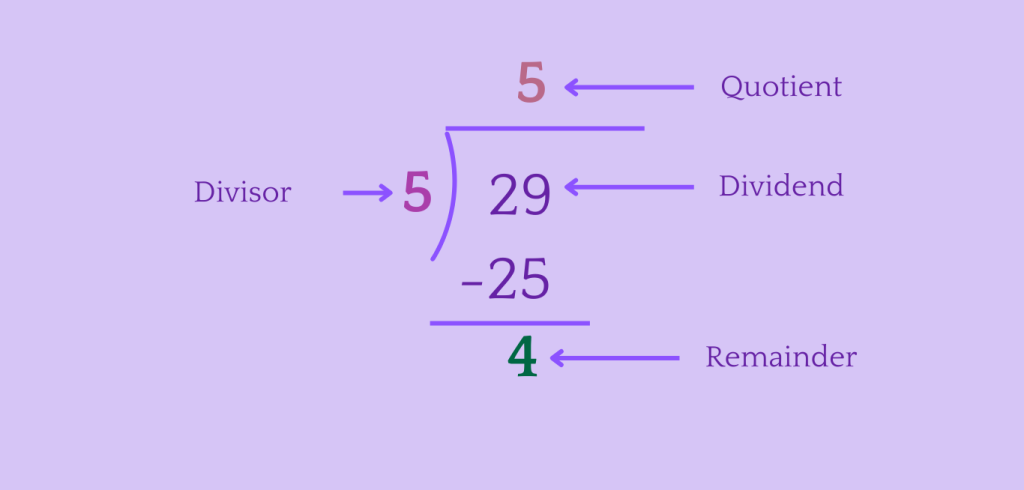Understanding the Significance of Quotient in Mathematics
Table of Contents
Introduction
Quotient
In the realm of mathematics, the concept of Quotient plays a fundamental role in division and problem-solving. Let’s delve into the realm of Quotient and uncover its significance in mathematical operations.
Analogy of Definition
What is Quotient?
The Quotient of two numbers is the result obtained when one number is divided by another. It represents the number of times the divisor can be subtracted from the dividend without resulting in a negative value. For example, if we divide 15 by 3, 5 will be the quotient.

Method
Quotient and Remainder
The quotient is the result of dividing one number by another. It represents how many times the divisor fits into the dividend without exceeding it. The remainder is the part of the dividend that is left over after division when the divisor does not evenly divide the dividend. It is the “leftover” part that cannot be further divided by the divisor without going into fractions.

How to Find Quotient?
There are several methods to determine the Quotient of numbers. One approach involves using long division to divide the dividend by the divisor and obtain the Quotient and remainder.
To find the quotient, follow these steps:
Step 1: Identify the Dividend and Divisor
The dividend is the number you want to divide. The divisor is the number you are dividing by.
Step 2: Perform the Division
Divide the dividend by the divisor.
Step 3: Check for Remainders
If the division doesn’t result in a whole number, you will have a remainder. The quotient is the whole number part of the division.
Examples
Example 1: Simple Division
Step 1: Identify the dividend and the divisor.
- Dividend: 20
- Divisor: 4
Step 2: Perform the division.
- 20 ÷ 5 =4
Step 3: There is no remainder.
- The quotient is 5
Example 2: Division with Remainder
Step 1: Identify the dividend and the divisor.
- Dividend: 22
- Divisor: 4
Step 2: Perform the division.
- 22 ÷ 5 = 4, with a remainder of 2.
Step 3: The quotient is the whole number part.
- The quotient is 5, and the remainder is 2.
Quiz
Tips and Tricks
1. Use Multiplication Facts:
Tip: Knowing your multiplication tables can make finding the quotient quicker and easier. For example, knowing 6 × 4 = 24 helps you quickly solve 24 ÷ 6.
2. Estimate and Adjust
Tip: If you’re not sure of the exact quotient, estimate first. For example, if dividing 37 by 5, estimate 35 ÷ 5 = 7. Then, adjust to find the exact quotient: 37 ÷ 5 = 7 remainder 2.
3. Long Division for Large Numbers
Tip: Use long division for dividing larger numbers step-by-step. Break the problem into smaller, manageable parts.
4. Understand Remainders
Tip: Remember that the quotient is the whole number result of division, and the remainder is what’s left. For example, 29 ÷ 4 = 7, remainder is 1.
5. Check Your Work
Tip: Multiply the quotient by the divisor and add the remainder. This should equal the original dividend. For example, for 29 ÷ 4 = 7 , emainder 1, check: 7 × 4 + 1 = 28 + 1 = 29.
Real life application
Story: The Quotient Quest of Alex and Sophia
Alex and Sophia, two inquisitive students, embarked on a quest to explore the practical applications of Quotient in real-life scenarios.
Challenge 1: The Pizza Party Dilemma
Alex and Sophia organized a pizza party and needed to calculate the number of slices each person would receive. By determining the Quotient of the total number of slices and the number of people, they were able to distribute the slices equally among the guests.
Challenge 2: The Speed Calculation Adventure
During a road trip, Alex and Sophia wanted to calculate the average speed of their journey. By dividing the total distance traveled by the time taken, they obtained the Quotient, representing the average speed of their trip.
Challenge 3: The Share Market Analysis
In a finance project, Alex and Sophia analyzed the performance of various stocks by calculating the Quotient of the total investment and the number of shares purchased, enabling them to determine the cost per share.
FAQ's
Like? Share it with your friends






